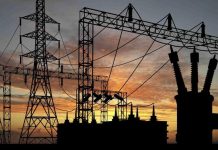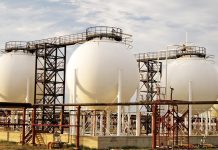Africa Press-Nigeria:
The recent report that the Federal Government and oil companies lost an estimated N87.16billion from January to May this year due to gas flaring is disturbing. The loss resulted from a total of 90.9 billion standard cubic feet (scf) of natural gas flared in the country. According to the Nigerian National Petroleum Corporation (NNPC), the amount was arrived at based on the price of natural gas at $2.53 per 1,000 scf(using official exchange rate of N379/ dollar as at August, 2020).
Details of the losses showed that International Oil Companies (IOCs) wasted 19.95 billion scf of gas in January, 18.27 billion scf in February, 19.71 billion scf in March, 17.90 billion scf in April, and 15.07 scf in May. The NNPC also said a total of 1.30 billion scf per day of gas was supplied to the domestic market and 3.33 billion scf per day was supplied to the export market in May. This means that 61.97 per cent of the average daily gas produced was commercialised while the balance of 38.03 per cent was re-injected, and subsequently used as upstream fuel gas or flared. In other words, gas flare rate was 6.50 per cent for the month under review, representing 486.19 million scf per day.
Out of the 1.30 billion scf supplied to the domestic market in May, about 833.95 million scfd, representing 64 per cent was supplied to gas-fired power plants while the balance of 469.15 million scfd or 36 per cent was supplied to other industries. Without doubt, the amount of revenue lost to gas flaring is unacceptable. The health and environmental implications of gas flaring must be checked.
The estimated N87.16billion loss over the five-month period followed a worrisome pattern that dates back over a decade of gas flaring by oil companies in the Niger Delta region. The existing penalty payment regime seems not to have deterred the oil majors from wanton gas flare. According to the revised payment regime for gas flaring, oil firms producing 10,000 barrels of oil or more per day will pay $2 per 1,000 scf of gas, compared to N10 per 1,000 scf in the past. Oil companies producing less than 10,000 barrels of oil per day will pay a gas flare penalty of $0.5 per 1,000 scf. This should be reviewed drastically upward.
Nigeria cannot continue to flare gas at this rate, especially on account of its economic, health and environmental implications. Currently, Nigeria is ranked the second top gas flaring country in the world, and number one in Africa with an estimated 22.3 billion scf of gas flared monthly. Globally, over 150 billion cubic metres of associated gas is flared annually. According to NNPC Annual Statistical Bulletin, a total of N173.76 billion was lost in 2014, out of which N27.23billion was lost in August of that year.
The amount remains on the rise every year. Besides, NNPC data reveals that the present situation is largely due to the inability of the government to complete projects that are designed to reduce gas flaring. Two of the projects are the Brass and Olokola Liquefied Natural Gas companies in Bayelsa, as well as the Trans Saharan Gas pipeline, running from Nigeria to Algeria. The Federal Government had in June this year started the construction of a $2.8 billion 614-kilometre gas project running from Ajaokuta-Kaduna-Kano. It is the single biggest gas pipeline in Nigeria’s history.
Beyond being hazardous, gas flaring is unsustainable from both resource management and environmental perspectives. For Nigeria, the call to end gas flaring has become more urgent now than ever before. In February, the Department of Petroleum Resources (DPR) said it had shortlisted 200 investors to bid for gas flare sites after the evaluation of statements of qualification submitted by interested companies. The DPR gave assurance that 45 gas flare sites would be put up for auction in the first phase of the Nigerian Gas Flare Commercialision Programme. We urge that the process should be hastened.
In 2015, the World Bank released a plan to end routine gas flaring by the year 2030 all over the world. It is reassuring that the Federal Government is part of the global agreement to realise this objective. Government must muster the political will to make this a reality. The presidency should work with the National Assembly to make tough laws against gas flaring. The country can no longer afford to continue the gas flaring estimated at over 600 trillion cubic feet. Besides, it is dangerous to both humans and the environment. Therefore, we call for urgent pragmatic measures to end gas flaring.







